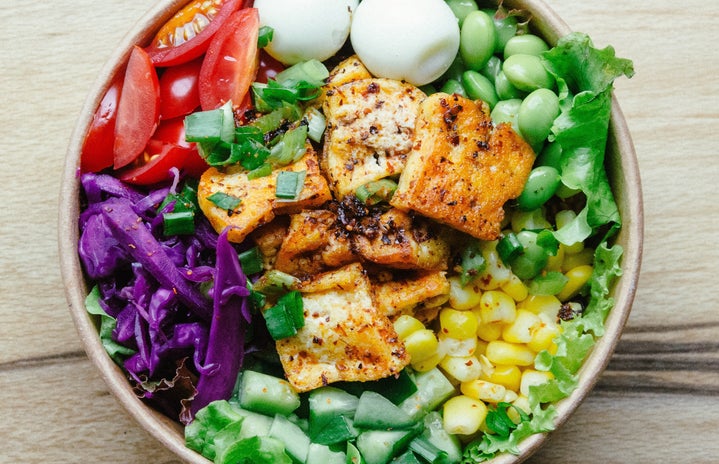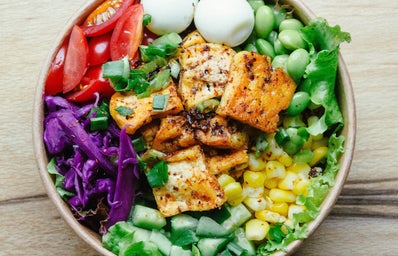Every college student knows how difficult it can be to maintain a balanced and healthy diet. After all, we’ve all heard of the freshman (or sophomore, junior, and senior) 15. Tack on a whole pandemic onto that, and it’s become harder than ever to maintain a nutritious diet. Good nutrition is essential in a time like this, not only for supporting the immune system, but also for reducing the likelihood of developing other kinds of health problems. Since classes are virtual for most, now is the perfect time to focus on healthy eating and good nutrition.
1) Planning and preparation are key. Try to visualize breakfast, lunch, and dinner for at least 5 days. This will play a huge role in helping you to minimize trips to the grocery store. Stock up on nutritious foods that will stay fresh for a good amount of time, such as breads, grains, eggs, cheese, nuts and seeds, soups and broths and more. Try to minimize the frozen dinners, as many are high in sodium, fat, and calories. Keep costs down by limiting your purchase of tempting foods like chips, cookies, and other snacks.
2) Manage your environment. If candy and other sweets aren’t in the cupboard, then you simply can’t eat them! On the other hand, if you have healthy snacks on hand, you’re less likely to be tempted by chips, ice cream, or vending machine candy. Possible healthy snacks include: dried fruit, pretzels, rice cakes, whole wheat crackers and granola bars.
3) Stay hydrated. Your body needs at least eight glasses of water a day. Try to keep a water bottle with you throughout the day, in case you need to rehydrate. Try to keep the sugar-sweetened beverages at a minimum. Staying hydrated leads to better skin, more energy, and better health overall.
4) Eat breakfast, even if you wake up at lunchtime. I’m sure we’ve all heard about the negative effects that skipping breakfast can have on us. Even if you don’t have time to enjoy a morning meal, try to keep a bagel, fruit, or juice on hand for a quick meal.
5) If you must eat fast food, choose wisely. On those days you really don’t feel like cooking (believe me, I’ve had those), be mindful of what you decide to order on Uber Eats or Door Dash. Instead of reaching for French fries or fried chicken, try a sandwich or green salad instead.
6) Avoid late snacking or dining. Sleeping in and staying up late is almost apart of the “rite of passage” to being a college student. That being said, try not to indulge yourself in late night snacks and extra meals! Refrain from ordering that pizza after a late night of studying, and work on getting more sleep instead.
7) Think positive! A good mindset is vital to getting through this pandemic in a healthy manner – physically and mentally!
I know that following all these rules can be tough, so be sure to give yourself a break every once in a while. Reward yourself for a week of healthy eating by going to grab ice cream, or eating that snack you’ve been craving.
Being a college student, especially a college student completing their studies virtually, is extremely difficult. In a global pandemic, it can be hard to focus on certain aspects of our lifestyles that we may have prioritized before. It is more important than ever that we exercise control over what we can, that being the health of our bodies. This list will set you on the right track to doing just that!



